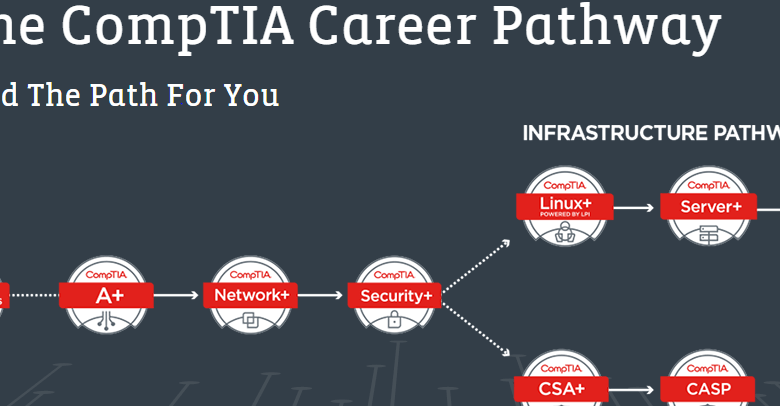Navigating the World of Microsoft, Cisco, and CompTIA Certifications: The Role of Practice Tests and the Risks of Exam Dumps

Introduction
In the ever-evolving world of information technology, certifications have become the benchmark for validating skills and knowledge. Among the most esteemed certifications in the industry are those offered by tech giants Microsoft, Cisco, and CompTIA. These certifications not only validate your expertise but also open doors to a myriad of career opportunities. However, the path to certification success is laden with challenges. This article explores the significance of Microsoft, Examsnap, and CompTIA certifications, the critical role that practice tests play in exam preparation, and the potential dangers associated with exam dumps.
The Significance of Microsoft, Cisco, and CompTIA Certifications
Microsoft, Cisco, and CompTIA certifications are highly regarded in the IT industry. Here’s why these certifications hold such value:
- Skill Validation: These certifications serve as a robust validation of your expertise and competence in specific IT domains. Employers trust these certifications as a testament to your skills.
- Career Advancement: Holding these certifications can significantly enhance your career prospects. Many organizations prioritize hiring certified professionals for crucial IT roles, often offering higher salaries.
- Industry Relevance: These certifications are continually updated to align with the latest industry trends and technologies. By obtaining them, you demonstrate your commitment to staying current in a rapidly changing field.
- Networking Opportunities: Earning a certification connects you with a vast network of IT professionals and potential employers through conferences, forums, and online communities.
Challenges of Certification Exams
While the rewards of earning Microsoft, Cisco, and CompTIA certifications are clear, the certification exams themselves present several challenges for aspiring candidates:
- Comprehensive Content: These exams cover a wide array of topics, necessitating a deep understanding of various IT domains.
- Time Constraints: Exams are often timed, adding pressure on candidates to complete a substantial number of questions within a limited timeframe.
- Financial Investment: Failing an exam can be expensive, as candidates must pay the exam fee for each attempt.
- Anxiety and Stress: The pressure to pass the exam can lead to anxiety and stress, potentially affecting your performance on test day.
To overcome these challenges and increase your chances of success, many candidates turn to practice tests and exam dumps.
The Role of Practice Tests
Practice tests are simulated exams meticulously designed to replicate the format, structure, and difficulty level of actual certification exams. They offer several advantages for those pursuing Microsoft, Cisco, or CompTIA certifications:
- Exam Format Familiarization: Practice tests provide insight into the exam’s format, including the types of questions (multiple-choice, scenario-based, etc.), the number of questions, and the time allotted.
- Comprehensive Coverage: These tests cover the same topics and objectives as the real exams, enabling candidates to assess their readiness and identify knowledge gaps.
- Time Management Practice: Candidates can refine their time management skills to ensure they can efficiently complete all questions within the allocated time.
- Confidence Building: Regular practice test sessions boost confidence by demonstrating progress and highlighting improvements in weaker areas.
- Error Analysis: Practice tests typically include detailed explanations for each question, helping candidates understand the rationale behind correct and incorrect answers.
- Performance Tracking: Candidates can monitor their progress over time through scoring and performance tracking features available with practice tests.
Where to Access Practice Tests
Candidates can find practice tests tailored for Microsoft, Cisco, and CompTIA certifications through various sources:
- Official Certification Providers: Microsoft, Cisco, and CompTIA often provide official practice tests, considered the most reliable representation of the actual exams.
- Online Learning Platforms: Many e-learning providers and online learning platforms include practice tests as part of their certification preparation courses.
- Exam Preparation Books: Certification preparation books frequently include practice questions and exams to aid in your studies.
- Community Forums: Online forums and communities may contain practice tests created and shared by individuals who have previously taken the exams.
Exam Dumps: Controversy and Consequences
While practice tests serve as legitimate and valuable resources, exam dumps are a contentious issue in the certification exam realm. Exam dumps consist of actual exam questions and answers, often obtained by individuals who have taken the exams. Here’s an overview of the pros and cons associated with exam dumps:
Pros of Exam Dumps:
- Familiarity with Real Questions: Exam dumps may contain authentic questions that have appeared on previous exams, giving candidates a glimpse of the types of questions they might encounter.
- Quick Review: Exam dumps offer a convenient way to review and reinforce knowledge shortly before the exam.
Cons of Exam Dumps:
- Ethical Concerns: Using exam dumps is widely considered unethical, as it violates exam policies and breaches the trust of certification providers.
- Legal Ramifications: Both obtaining and using exam dumps can result in legal consequences, including the revocation of certifications.
- Limited Learning: Relying solely on exam dumps can lead to a shallow understanding of the topics, which may negatively affect long-term career prospects.
- Outdated Information: Exam dumps may not be updated with the latest exam content, as certification providers regularly refresh their exams to reflect current industry standards.
- Risk of Exposure: Using exam dumps can lead to disqualification from future exams and damage your professional reputation.
In summary, while exam dumps may provide short-term benefits, their use comes with significant ethical and legal risks. It is advisable to prioritize ethical and legitimate study methods, such as practice tests and comprehensive study materials, to prepare effectively for certification exams.
Read also Exploring iTop VPN: Unveiling the Benefits of Free VPNs in Brazil
Best Practices for Leveraging Practice Tests and Avoiding Exam Dumps
To make the most of practice tests while avoiding the pitfalls associated with exam dumps, consider these best practices:
- Opt for Official Practice Tests: Whenever possible, choose official practice tests provided by Microsoft, Cisco, and CompTIA. They are the most accurate representation of the actual exams.
- Supplement with Study Materials: Integrate practice tests into a comprehensive study plan that incorporates official study guides, textbooks, online courses, and hands-on experience.
- Establish a Study Schedule: Develop a structured study schedule that includes regular practice test sessions to track your progress and identify areas for improvement.
- Avoid Exam Dumps: Refrain from using exam dumps, as they jeopardize your ethical standing and can harm your long-term career prospects.
- Seek Support and Guidance: Consider joining study groups, forums, or online communities where you can share experiences, seek advice, and receive guidance from certified professionals.
Conclusion
Earning Microsoft, Cisco, and CompTIA certifications can be a game-changer in your IT career. While the journey to certification success may present its share of challenges, practice tests offer a legitimate and effective way to prepare for these exams. They provide a structured approach to studying, allow you to assess your readiness, and boost your confidence. On the other hand, exam dumps, while tempting, carry ethical and legal risks that can have lasting repercussions. Prioritize ethical and legitimate study methods, and you’ll not only pass the certification exams but also gain the knowledge and skills necessary to excel in your IT career, all while maintaining your professional integrity.




